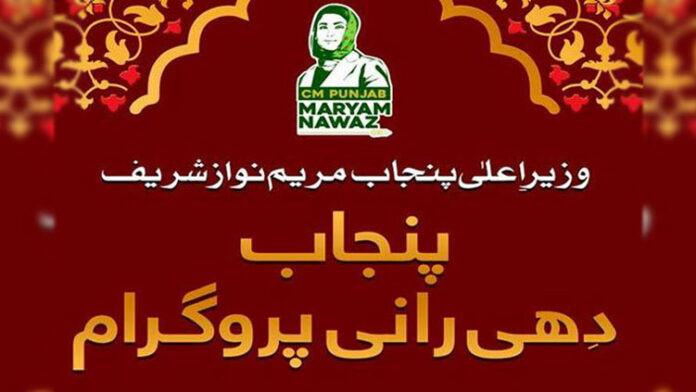- Advertisement -
RAWALPINDI, Apr 24 (APP):Since becoming Punjab’s first female Chief Minister, Maryam Nawaz Sharif has introduced a comprehensive socio-economic development agenda in the history of the province. Making the province a prosperous, inclusive Punjab, the initiatives encompass agriculture, education, healthcare, women’s welfare, social protection, and infrastructure development directly addressing poverty, unemployment, and systemic inequalities.
The revolutionary welfare initiatives cost above Rs. 570 billion, a comparatively largest amount allocated for data-driven 12 flagship programmes, can be termed as Punjab’s kinetic socio-economic overhaul.
“Punjab Dhee Rani Programme”, unique of its kind, is a super push for women’s empowerment. A Rs.1.0 billion welfare initiative aimed at supporting underprivileged families in solemnizing their daughters’ marriages with dignity. The ‘Dhee Rani’ program was launched in response to alarming statistics showing over 23.6 million unmarried adults in Punjab. Recent census data indicates a 5.2 million increase in unmarried population over six years. The challenge was boldly accepted by the Punjab government that has chalked out a comprehensive strategy to tackle.
” The initiative has many positive impacts; dignified wedding ceremony, opportunity to include women into mainstream, discouraging dowry system, protecting women from societal slurs and promoting gender equality”, said Dr. Raza Ullah, Assistant Professor and Chairperson Department of Sociology Rawalpindi Women University.
The programme focuses on arranging collective weddings in which each bride receives Rs.100,000.0 as “salami” (wedding gift), plus a dowry package including essential household items such as the Holy Quran, prayer mat, wooden double bed with mattress, mirror, and dinner set.
Professor Dr. Raza Ullah notes that the project will also combat the social factors of the rising rate of unmarried women.
“The factors of the high number of unmarried girls in punjab including the dowry system, poverty, low literacy etc will be discouraged well through the Dhee Rani initiative”, he said.
The government organizes mass wedding ceremonies across Punjab, covering all event expenses and honouring the couples with ‘free of cost marriage’ at hotels, marquees etc. Having eligibility criteria of brides aged between 18-40 years, unmarried, and holder of Punjab domicile, the programme has targeted the population based on transparently collected data.
Efforts of Puniab Socio-Economic Registry (PSER) in collecting and arranging required data remains a vital element in the whole campaign.
In the first phase, above 4,000 girls were married in dignified ceremonies. The second phase, launched in April, has already organized 1,013 weddings in 14 districts, with target of 2,000 plus weddings in 2025 .
Only in Rawalpindi, 97 couples got married in the second phase, during a stunning wedding event which was organized in the city’s one of the top hotels. A number of parliamentarians, notable politicians and high ranking government officials attended the event.
“The initiative promotes social cohesion by including beneficiaries from all religious communities”, said Nazia Jabeen, a university student.
Unlike traditional welfare schemes, the “Dhee Rani Programme” ensures transparency through electronic balloting for beneficiary selection and real-time tracking via an official dashboard.
“Chief Minister Maryam Nawaz’s women’s empowerment initiatives mark a revolution in Punjab”, said Nazia Jabeen.
From Dhee Rani’s wedding support to Pink e-Rickshaws and skills training, her programs deliver tangible equality, transforming financial independence into social transformation for millions of women.

